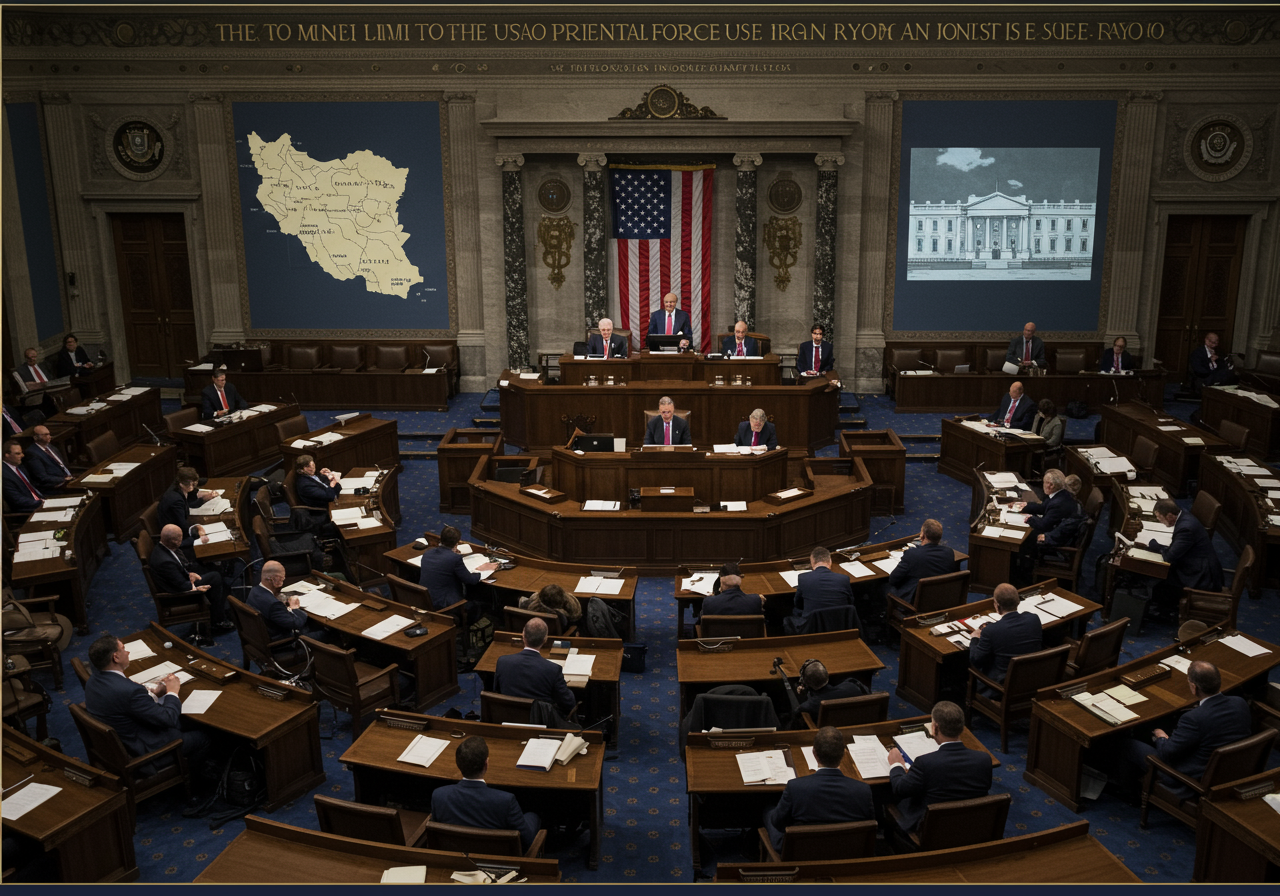In a significant development, the United States Senate has rejected a crucial proposal aimed at curbing the president鈥檚 authority to use military force against Iran. The highly debated proposal, seen as a direct check on presidential power, was designed to stave off unilateral military actions without explicit Congressional approval.
The decision is widely seen as pivotal, highlighting the intense divisions within U.S. political circles regarding presidential war powers and the nation鈥檚 ongoing relations with Iran. While some lawmakers viewed the proposal as essential for maintaining the balance of power and ensuring adequate deliberation before military engagements, others considered it a mechanism that could potentially cripple the executive branch鈥檚 ability to respond swiftly to international threats.
The Context of the Proposal
In recent years, the U.S. has had a tumultuous relationship with Iran, marked by escalating tensions, diplomatic confrontations, and occasional military skirmishes. Against this backdrop, the call for restraining presidential authority has become louder, as lawmakers from both sides of the aisle express concerns over unchecked military actions.
The proposal that was put forward aimed to amend the existing Authorizations for the Use of Military Force (AUMF). These AUMFs, which have been in place since the early 2000s, grant the president significant leeway to engage militarily with minimal legislative oversight, a power that has been deemed controversial by many. Lawmakers advocating for the amendment argued that such powers should not be used indefinitely or without comprehensive scrutiny.
Diverse Opinions in Senate
The debate in the Senate featured strong opinions from both proponents and opponents of the proposal. Supporters stressed that unchecked military authority could lead to unnecessary conflicts, which may not reflect the will of the American public. They emphasized the need for Congress, the branch closest to the people, to have a say in matters of national security and military engagements.
Opponents, however, argued that the president needs the flexibility to respond quickly to international crises, especially given the unpredictability of global events. They voiced concerns that legislative checks could hinder effective decision-making in times of urgent need.
Senate Majority Leader highlighted the necessity of maintaining a robust and responsive defense posture. He argued that curtailing the president鈥檚 powers in this way could embolden adversaries and destabilize the fragile security dynamics in regions like the Middle East.
Implications for U.S.-Iran Relations
The rejection of this proposal could have significant implications for U.S.-Iran relations, potentially influencing diplomatic interactions and future military policies. For Iran, this decision could be interpreted as a sign of continuity in the U.S.鈥檚 approach to its foreign policy, suggesting a sustained willingness to assert military options if deemed necessary.
For the U.S., the decision underscores the contentious nature of its foreign policy in the Middle East and the ongoing debates surrounding military interventions. The possibility of military engagements remains on the table, which might influence Iran鈥檚 strategic calculations in dealing with America and its allies.
Tensions between the two nations have been a focal point of international concern, with incidents threatening to escalate into broader conflicts. This decision by the Senate may impact the diplomatic overtures that have been made in recent years and could alter the existing diplomatic calculus.
Responses and Reactions
Reactions to the Senate鈥檚 decision were mixed across the international community and within the United States. Some global leaders expressed disappointment, fearing that this move could escalate tensions in the already volatile Middle East region. They advocated for more diplomatic engagement rather than military confrontation.
Within the United States, advocacy groups and political analysts weighed in, discussing the implications of the decision for democracy and constitutional governance. Civil rights organizations, in particular, have expressed concerns over the potential for executive overreach.
The broader public, as shown in recent opinion polls, remains divided. Some citizens favor caution and diplomacy over military aggression, while others support decisive action to counter perceived threats, including those from Iran.
Looking Ahead
The rejection of the proposal sets a precedent that may influence future legislative discussions on the balance of power between Congress and the presidency, particularly concerning military actions. As geopolitical challenges continue to arise, the debate on presidential war powers is expected to persist, with ongoing discussions about the appropriate balance between security and democratic oversight.
The Senate鈥檚 decision also signals the complexities of contemporary governance in the face of global threats. Balancing the need for prompt action against the principles of democratic oversight will remain a priority for lawmakers as they navigate international affairs and domestic expectations.
As more developments unfold, the focus is likely to return to how the U.S. navigates its relationships with adversaries and allies alike. With the stakes as high as ever, the intricate dance of diplomacy must align with the realities of national and international politics. The continued scrutiny of presidential powers will undoubtedly shape America鈥檚 approach to global leadership and security in the years to come.
